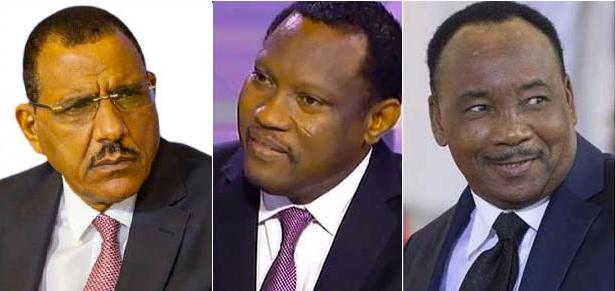Has Mauritania done a deal with the Islamist terrorists?
Published on Thursday 19 July 2018 Back to articles
In spite of the terrorist threat that has supposedly been knocking on Mauritania’s door since President Mohamed Ould Abdel Aziz came to power in 2009, the country has experienced no terrorist attack since a car bomb failed to detonate in Nouakchott in February 2011.
People are increasingly beginning to ask why. As one journalist remarked, it is as if there was some sort of tacit truce between the terrorist groups and the authorities in Nouakchott. The rumours are that Iyad ag Ghali does have implicit agreements with Nouakchott and the Mauritanian border surveillance units.
Iyad — the leader of Ansar al-Dine and the Jamaat Nusrat al-Islam wal Muslimeen (JNIM) — was closely associated with Algeria’s Département du Renseignement et de la Sécurité (DRS) and since Ansar al-Dine’s creation in November 2011 has been given sanctuary in the extreme south of Algeria. When chased by France’s Barkhane forces, he and his men have simply slipped across the border to the sanctuary of Algeria.
It is believed that he has a similar relationship with Mauritania. In 2015, when Nampala in northern Mali was attacked by Islamist terrorists, several eye witnesses claimed that the attackers came cross the border from Mauritania. In the latest attack in Mali, on the town of Nara, eyewitnesses are again saying that the attackers came across the border from Mauritania. In earlier fighting in Léré in northern Mali, the Islamist terrorists, who were also believed to have come from Mauritania, were given medical treatment at the Nema hospital in eastern Mauritania and at the Nouakchott military hospital.
Similarly, questions are now being asked as to whether the escape from prison of Sheikh Ould Salek — one of the Islamist terrorists convicted in the failed 2011 car bomb attack in Nouakchott — was also part of this deal. He was sentenced to death but escaped from prison in December 2015 under circumstances that have still not been explained.
This sort of evidence is leading people in Mali especially to believe that there is a deal between the terrorist groups operating in Mali and Mauritania’s President Abdel Aziz. If this analysis is correct, then Mauritania might now find itself in something of a dilemma. Although it is at the forefront of any counter-terrorism initiative in the sub-region, it has not agreed to participate in Operation Serval in Mali. Nor has it yet sent troops to the G5 Sahel force. If, however, Mauritania’s General Hanane Ould Sidi does replace General Didier Dacko as commander of the G5S force, he will presumably have to commit Mauritanian troops to the force and to the fighting in Mali. The question is whether the Islamist terrorists will view that as reneging on the deal and, if they do, what will be the consequences?
President Abdel Aziz is also being accused, at least in the media, of using legislation to fight terrorism to crush his opponents. For example, his very loosely worded anti-terrorist law that was passed in 2010 was used to prosecute Abdallahi Salem Ould Yali — an activist from the Harratin community of black-skinned Arabic-speaking Mauritanians who are descendants of slaves — for inciting ethnic or racial fanaticism. Under the 2010 law, this is deemed to be a terrorist offence.
Ironically, Mauritania’s former president Maaouya Ould Sid’Ahmed Taya (1992-2005) was ousted in a coup d’état after using the pretext of terrorism to repress his many opponents.
This article was taken from our monthly Sahara Focus publication. If you wish to talk to one of our experts with regard to the content of this article, or if you have any questions regarding your business in Mali, the Sahara region, or the surrounding area, then please feel free to contact us.



